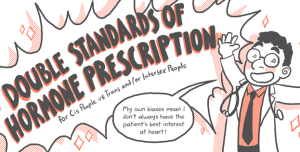
A pregnant person lies in a birthing pool, supported by two midwives.
We are in a time when our goodness as humanity is being questioned. Borders are militarized and becoming stronger, refugees are denied access to needed resources, and hate crimes are on the rise.
In this country, we are unquestionably seeing the results of generations of trauma and segregation.
For about a hundred years, humans have routinely birthed our babies in hospitals. During this time, the medical community, as an oppressive institution, has been interfering with many of the physiological process of birth, performing often unnecessary, misogynistic interventions and separating babies from their parents.
These practices have laid the foundation for many generations of traumatized and isolated human beings.
Fortunately, midwifery care offers a much-needed contradiction.
Imagine: dim lighting, the familiarity of your own home, and care providers who you trust medically and emotionally and who have spent your entire pregnancy getting to know you and what you want for your birth.
Consider a world where all pregnant people are treated with the utmost autonomy and respect and the bond between children and parents is passionately supported. Where babies are born with trust, connection, and safety.
Of course, not everyone has access to homebirthing. Many factors – including disability, income and access to health care, and even cultural acceptability – affect a person’s access to and desire for homebirth. And we would never want to suggest that this is the only, or even the best, option. The best option is always the one that makes sense for you.
We do want to make space to talk about how midwifery can be a radical choice that rebels against an oppressive institution, especially in a world where more and more, we’re realizing that our day-to-day choices make a difference.
The way we’re born is one thing that can be considered in our movements of resistance. As we fight against the inhumane policies of the current administration, our work to reclaim our humanity is both personal and political.
So here are seven reasons why homebirth with midwives is one human(e) and anti-oppressive way to give birth.
1. Homebirth Is a Contradiction to Oppression
In today’s world, the forces of capitalism, racism, sexism, and classism work to isolate us. Oppression functions by disconnecting us from our bodies, each other, and the natural world.
When we are fully in touch with our own humanity, it is easy for us to see the humanity in others. Homebirth is a contradiction to oppression because it supports our humanity above all else in a way that the medical industrial complex often doesn’t.
Homebirth can be a safe haven. It offers the opportunity for pregnant people and families to craft the experience of pregnancy and birth that they most want and deserve, where consent is the highest priority and safety is not only physical, but emotional and spiritual as well.
Homebirth offers an opportunity to experience birth outside of the institutions of society that all too often cannot see or respect us in all of our human complexities.
And for those who want to choose this option, it can be incredibly powerful.
When a cis woman chooses midwifery care, she can opt out of the culture of patriarchy that insists that her body should be manipulated and controlled.
When a person of color chooses to birth with a trusted provider in their own home, they can carve a space for themselves outside of the racist institutions that have never cared about the wellbeing of their bodies or their babies.
When a trans or gender non-conforming person chooses a midwife who is a true ally, they might feel free to experience their bodies and babies as they are, outside of pervasive expectations of sex and gender.
2. The Way We’re Born Affects Us for the Rest of Our Lives
There is substantial evidence that the way we’re born affects us – mentally, physically, and emotionally.
In the US, medical interventions have taken over our evolved physiological process of birth. In some ways, we can argue, this is a good thing: After all, we’ve seen a huge dip in childbirth mortality rates.
But with one in three babies born through cesarean section, 60-80% of pregnant people birthing with epidurals, and astronomically high rates of use of synthetic oxytocin, it’s worth questioning whether or not all of these procedures are always necessary.
Many studies are now proving that the way we are born correlates with our physical health later in life. There is some evidence linking cesarean birth with health conditions such as asthma, type 1 diabetes, and other chronic health problems.
The concerns are not only physical.
Babies need caregivers, physically and emotionally, to transition into extra-uterine life, so the immediate separation following a cesarean birth can have profound effects on babies’ nervous systems.
Research shows that our early imprints of attachment have lasting emotional and psychological effects in later years.
The important question to ask ourselves as a society is: What are the results of all of this meddling with the physiological process of birth?
Are the interventions common in the birth industrial complex inhibiting our own production of bonding hormones and affecting our capacity to love and bond with future generations?
These questions are necessary now, more than ever, while our president enacts policies that promote separation and isolation in the name of “safety,” building walls and anti-immigration policies that are inhumane and ineffective.
3. Isolation Is the Main Foundation of Oppression
Human beings have an innate physiological need for connection. Compared to other mammals, human babies are born remarkably premature, and we remain extremely dependent on our caregivers for years (physically and emotionally).
When we interfere with the vitally important process of connection between babies and caregivers, we are denying each baby’s innate need for connection and negatively affecting their normal growth process.
The way the institution of medicine manages birth in this country can reflect be isolating to our children. And this matters now more than ever because totalitarianism itself is a result of isolation.
Despotic, divisive leaders are elected when anger and disconnection abound and anything “other” is seen as a threat and an enemy. A sense of isolation causes people to feel hopeless about their lives and the world, allowing power-hungry dictators to capitalize on their vulnerability and gain control.
People in the US have become deeply disconnected, from ourselves and from each other, and the result is an epidemic of xenophobia, racism, and fear.
The result is a president whose entire campaign was based on slander, fear-mongering, and verbal abuse.
There are many different interwoven threads of history that have brought us to this political moment. One of them, I think, and arguably one of the most important and the most often overlooked, is birth.
Because being born is the most fundamental experience that we all have in common.
And in this culture so prone to mistrust, fear, and disconnection, we rarely acknowledge the systemic issues around the birth industrial complex that perpetuate these dynamics.
4. Rates of Morbidity and Mortality in the US Are Distressing – And Racialized
The US ranks 33rd in the world in our rates of parental morbidity and mortality (last among all other developed nations), and 26th in our statistics of neonatal morbidity and mortality.
Although we are the wealthiest country in the world, we are not, in general, taking good care of our pregnant populations and our future generations.
The statistics are extremely racialized as well. Pregnant people of color (specifically Black populations) suffer the poorest outcomes.
According to data from the National Center for Health Statistics, Black babies are twice as likely as white babies to die within the first year of life. They are twice as likely as white babies to be born with low birth weight and three times as likely as white babies to be born very premature.
This discrepancy still holds when we control for differences in class and access to healthcare.
It is clear from the research – and, of course, people of color’s experiences – that racism and white supremacy play a major role.
Too many people are coming away from birthing in the hospital feeling disempowered and disappointed by their birth experiences – and then dismissed for those feelings.
Too many parent/baby dyads are being separated at birth, and too many major surgeries are being performed unnecessarily.
Too many people’s desires and needs around their birth experiences are being systematically ignored, which can result in disappointed or traumatized new parents and families.
The institution of medicine could learn a lot from midwifery, in terms of how to create a system more respectful of people’s needs. Because even when folks (and especially marginalized folks) choose hospital birth, shouldn’t they leave that experience feeling safe?
5. Western Obstetrics Arose From a Violent History
It’s not that hospitals are inherently bad places or that medicine is malintentioned: It’s that the system was never built to treat birthing people as self-directed individuals.
Modern obstetrics has a harrowing history.
James Marion Sims, considered the “father of modern gynecology,” gained his knowledge by conducting experiments on slaves, often without anesthesia.
In the mid 1800s, ether-based anesthesia was introduced into the delivery ward, resulting in unconscious birthing people, lethargic babies, and the implementation of forceps to pull babies out when their parents were unable to push.
People giving birth were often strapped to a bed and partners were denied entry into the delivery rooms; all the while, in the public sphere, the Association of Obstetricians conducted a very successful slander campaign against midwives and nurses, effectively orienting the future of birth towards hospitals.
This history matters.
This lack of humanity that was the history of modern obstetrics continues into hospitals today and is connected to the thread guiding our current political moment.
Today, there is a myth that having babies outside of the hospital is unsafe. Actually, research shows that for low-risk women (which is an important distinction), homebirth with a trained provider is as safe or safer than birthing in the hospital.
6. The Statistical Differences Between Hospital Birth and Homebirth Are Striking
While a direct comparison between homebirth and hospital birth statistics is not entirely accurate – because homebirth clients are, by definition, healthy and low risk – the disparate trends are significant.
- C-section rates for homebirth parents are 5.2%, compared to 32.2% in hospitals
- Babies born at home receive all of their needed blood due to delayed cord clamping, a practice which is not routinely performed in the hospitals
- Homebirth parents report high rates of satisfaction from their care, while in the hospital, 25-34% of birthing parents report experiencing birth trauma
- In the hospital, one in eight birthing parents experiences postpartum depression; the proportion decreases exponentially at home
For babies, immediate and constant skin-to-skin contact and a calm environment help them transition into this world with a more relaxed nervous system and, potentially, an unbroken sense of trust in their connection with their birth parent.
As midwives, our primary goal is to guard the health and safety of the pregnant person and baby while protecting the physiological intimacy that occurs between parent and child at the moment of birth and immediately after.
Our aim is to do as little as possible to disturb this bonding process.
In the midwifery model of care, we see the birth process as an everyday – albeit miraculous – part of life.
7. Homebirth Offers an Opportunity for Liberation and Healing
For the low-risk pregnant people for whom out-of-hospital, midwifery care is appropriate, homebirth can offer an opportunity to birth their families with fierce and loving self-determination.
Homebirth is a potential alternate option for people who are marginalized by this country’s major institutions and for anyone who wants personalized and intimate care.
When people have a trusted midwife with them as they go through the intensely transformative processes of pregnancy, birth, and postpartum, they may feel better equipped to lay the foundations for healthy, connected, and radical relationships with their children and with themselves.
Assata Shakur said, “Love is contraband in Hell, because love is an acid that eats away bars.”
We need to break the bars that keep us isolated from one another and cultivate trust and intimacy as our first step in our movements of liberation.
While there is much to do in the next four years to protect ourselves from – and thrive in spite of – the hungry forces of oppression, we must weave trust and connection into the foundations of our work.
Where better to start than at the moment of birth, if we have the option and the desire?
Homebirth is not just a trend. It is not a chic movement or a badge that proves how naturally minded or alternative one is.
Homebirth is, and has always been, part of our nature. It is so much more than the location where a baby is born, or the credentials of their birth attendant.
It is, in fact, the expression of our deepest humanity, allowing for early imprints of intimacy and connection – which are not only our birthrights, but our greatest hopes for change.
[do_widget id=’text-101′]
Marea Goodman is a homebirth midwife practicing in the San Francisco Bay Area. She strongly believes in the liberatory power of homebirth and midwifery care, and imagines a world where each person gets complete choice over every aspect of their reproductive experiences.
Search our 3000+ articles!
Read our articles about:
Our online racial justice training
Used by hundreds of universities, non-profits, and businesses.
Click to learn more




















